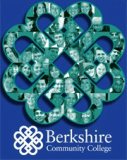This is somewhat in-depth post about a tiff between an app developer “Kno” who produces a tool that generates supplementary digital content from textbooks, and one of the publishers they work with, Cengage.
Inside Higher Ed has its view of the issue, which is multifaceted, but I have my own:
– Is Kno now at the forefront of a movement to “chunk” textbooks into bite-sized pieces, including video, flash cards, etc. (think Spark Notes), that will further chip away at instructors’ ability to get students to read books, digital or otherwise?
– How can we strike the balance between academic freedom for instructors to use whatever supplements they want, but maintain students’ ability to be successful across so many digital domains?
– Which leads to: how do we get students (and ourselves!) to the point of technological fluency where we see that ALL word processors work about the same, ALL LMS’s work about the same, etc., and reduce the learning curve for each new technology that comes along? Since the idea of controlling what technology comes into the campus is a fantasy (students bring their own, on their phones, these days), increasing our tech (and security) IQ seems to be the best answer
Here’s the article: http://www.insidehighered.com/news/2012/03/01/kno-cengage-lawsuit-highlights-high-stakes-digital-migration. I welcome your comments.
